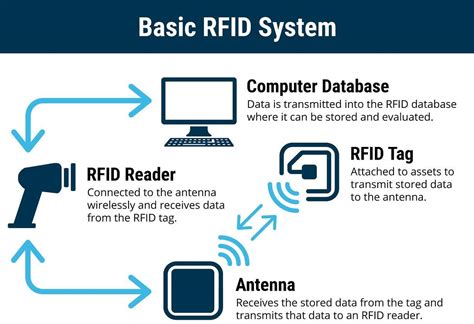patient tracking system rfid In Los Angeles, Adventist Health White Memorial improved operating room turnaround time by 27 to 24 minutes after deploying RFID tags and cloud-based . See more Target had Amiibo cards on the shelf! : r/amiibo. r/amiibo. Collectible Nintendo figures with NFC functionality that allows them to interact with many games on the Nintendo Wii U, Nintendo 3DS, and Nintendo Switch. • 1 yr. ago.
0 · rfid radio frequency identification tags
1 · rfid hospital patient tracking
2 · rfid examples
3 · rfid applications in health care
4 · radio frequency identification tags are
5 · radio frequency identification in health care
6 · hospital rfid location tracking
7 · advantages of radio frequency identification
For electronics geeks, we also want to use NFC technology to make our own things. So we .
rfid radio frequency identification tags
While infant abductions rarely occur, PRMC updated its infant security system in 2018 to give new parents peace of mind that their babies are secure. The hospital chose Stanley Healthcare’s RTLS and infant protection software for several reasons, including its reasonable cost, ability to track infants as they move . See moreIn Los Angeles, Adventist Health White Memorial improved operating room turnaround time by 27 to 24 minutes after deploying RFID tags and cloud-based . See moreThe amount Adventist Health White Memorial saved by using RFID-enabled workflow software to speed turnaround time in its operating rooms. “We have a . See more
Asset tracking systems use tags that support different technologies for transmitting data. Besides RFID, healthcare providers can deploy tags that use Wi-Fi, . See more
rfid hospital patient tracking
rfid examples
Smart patient tracking with RFID and IoT gives greater visibility into each patient’s location, improves patient safety, helps to identify the gaps in internal hospital processes and .Healthcare providers use RFID-enabled technology, including real-time location systems, to track patients, locate equipment and expedite care. Smart patient tracking with RFID and IoT gives greater visibility into each patient’s location, improves patient safety, helps to identify the gaps in internal hospital processes and find the ways to cover these gaps.
RFID in Hospitals: Overview. If used for hospital asset, medication, patient, and staff tracking, RFID technology is bringing benefits by cutting operational costs, streamlining hospital workflows and asset utilization, reducing medical errors, and improving patient safety.
Radio Frequency Identification, or RFID, is a powerful tool in the smart patient tracking system. In a nutshell, RFID involves using radio waves to identify and track objects — in this case, patients. Patients wear small RFID tags that transmit unique identifiers.RFiD Discovery’s Patient Flow system provides hospitals with a cutting-edge solution to track the movement of patients during their stay to streamline procedures, reduce waiting times and enhance overall patient satisfaction. The use of RFID offers many benefits to the healthcare industry related to patient safety, tracking, efficiencies in patient care, and provider satisfaction. Research shows that RFID can help to improve patient safety.
Radio frequency identification (RFID) has become a key technology in the logistics and management industry, thanks to distinctive features such as the low cost of RFID tags, and the easiness of the RFID tags’ deployment and integration within the items to be tracked. By using RFID-enabled patient tracking systems, healthcare providers may provide high-quality care while ensuring patient safety and satisfaction, from streamlined registration procedures to optimized surgical processes and post-operative monitoring.
apply for driving licence smart card
RFID-enabled patient tracking systems enhance the overall patient experience by improving the flow of care. From appointment scheduling to waiting room management, RFID technology helps to optimize the patient journey.
RFID and location tracking technologies enable hospitals to automate and expedite the admissions and discharge processes. By equipping patients with RFID wristbands, their movements can be accurately tracked throughout their stay.Healthcare providers use RFID-enabled technology, including real-time location systems, to track patients, locate equipment and expedite care. Smart patient tracking with RFID and IoT gives greater visibility into each patient’s location, improves patient safety, helps to identify the gaps in internal hospital processes and find the ways to cover these gaps.RFID in Hospitals: Overview. If used for hospital asset, medication, patient, and staff tracking, RFID technology is bringing benefits by cutting operational costs, streamlining hospital workflows and asset utilization, reducing medical errors, and improving patient safety.
Radio Frequency Identification, or RFID, is a powerful tool in the smart patient tracking system. In a nutshell, RFID involves using radio waves to identify and track objects — in this case, patients. Patients wear small RFID tags that transmit unique identifiers.RFiD Discovery’s Patient Flow system provides hospitals with a cutting-edge solution to track the movement of patients during their stay to streamline procedures, reduce waiting times and enhance overall patient satisfaction.
The use of RFID offers many benefits to the healthcare industry related to patient safety, tracking, efficiencies in patient care, and provider satisfaction. Research shows that RFID can help to improve patient safety.Radio frequency identification (RFID) has become a key technology in the logistics and management industry, thanks to distinctive features such as the low cost of RFID tags, and the easiness of the RFID tags’ deployment and integration within the items to be tracked. By using RFID-enabled patient tracking systems, healthcare providers may provide high-quality care while ensuring patient safety and satisfaction, from streamlined registration procedures to optimized surgical processes and post-operative monitoring.

RFID-enabled patient tracking systems enhance the overall patient experience by improving the flow of care. From appointment scheduling to waiting room management, RFID technology helps to optimize the patient journey.
rfid applications in health care
NFC tags are passive, meaning they don't have any power source. Instead, they literally draw power from the device that reads them, thanks to .
patient tracking system rfid|advantages of radio frequency identification